

Our demonstrator was Debra Claffey, who did an oil painting on paper demonstration.
The meeting was held in the Guild Hall, First Congregational Church (middle side door), Sanborn Street, Reading, Wednesday April 11th, 2018 at 7:30 p.m.
We have some photographs of the event in case you could not make it there in person.
Debra actually demonstrated her techniques on five separate paintings. Each one represented a different technique or a different stage in her technique. Since Debra prefers to work on a horizontal surface we put up the mirror.
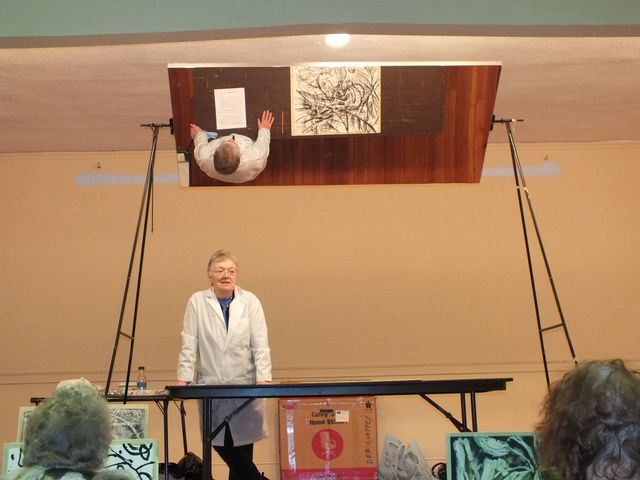
This is the setup we used for the demo.
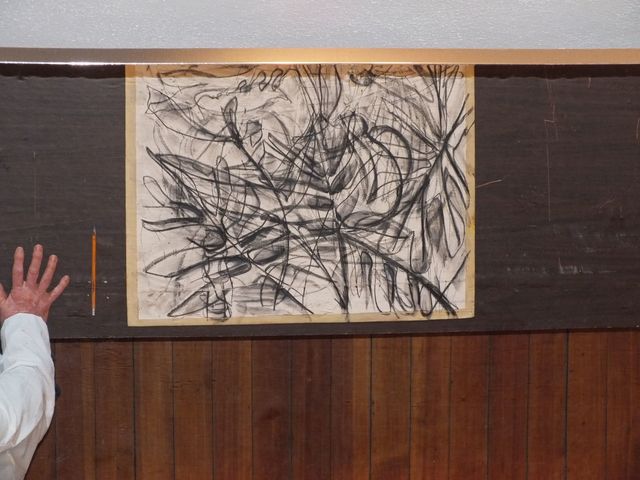
The initial image was created using encaustic medium on Rives BFK paper®.
The wax blocks the oil paint from being absorbed into the paper.
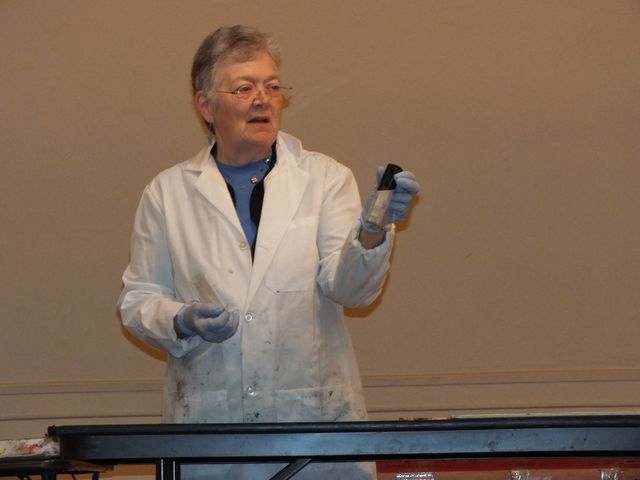
Debra likes to use R & F Pigment Sticks.®
These are made with bees wax, pigment and linseed oil.
They have the consistency of lipstick.
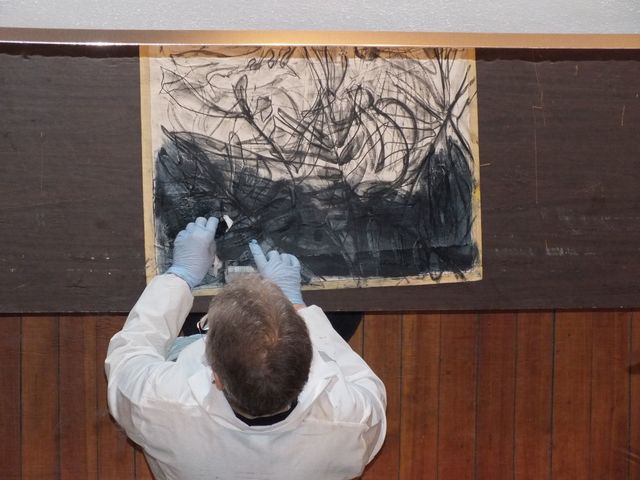
Here she is covering the bottom half of the painting with pigment.
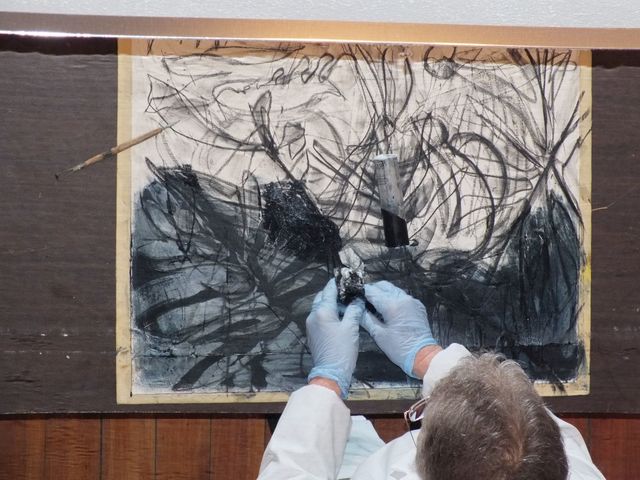
When she wipes it off, the pigment comes off of the surface where the wax covers the paper.
The oil stick soaks into the surface where the paper is bare.
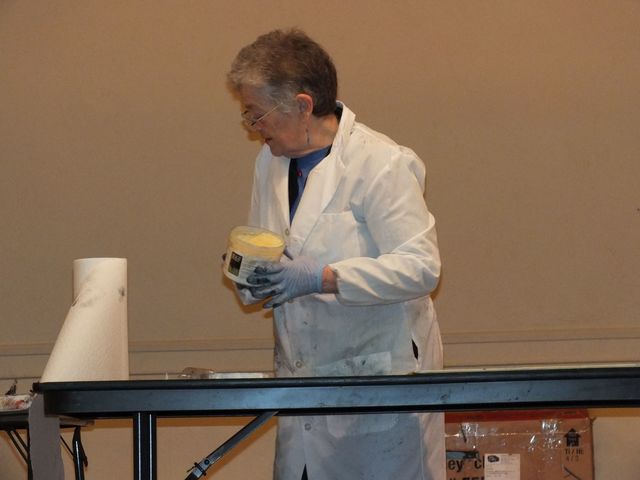
Debra uses B & F Blending Medium® mixed into the paint.
She buys it in jars rather than the blending sticks.
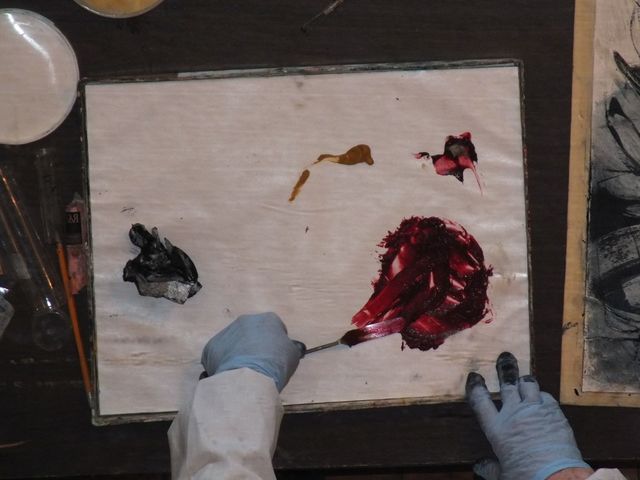
Here she is mixing the medium into some Alizarin Crimson
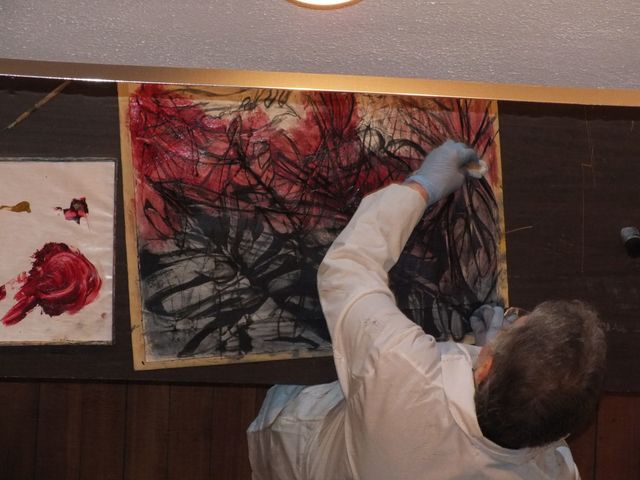
Then, she wiped the mixture over the painting.
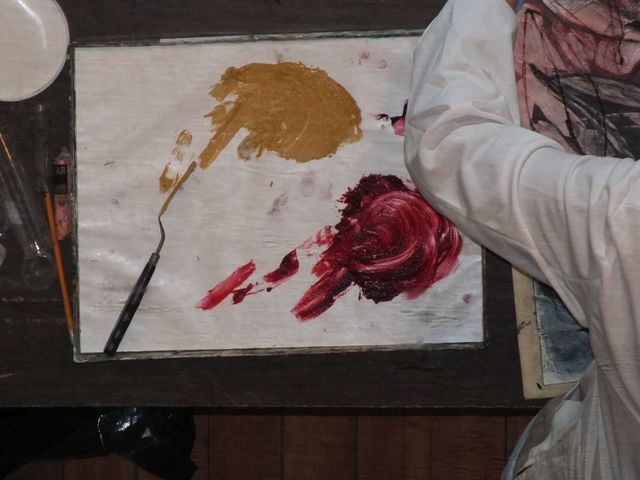
She did the same thing with some Yellow Ochre
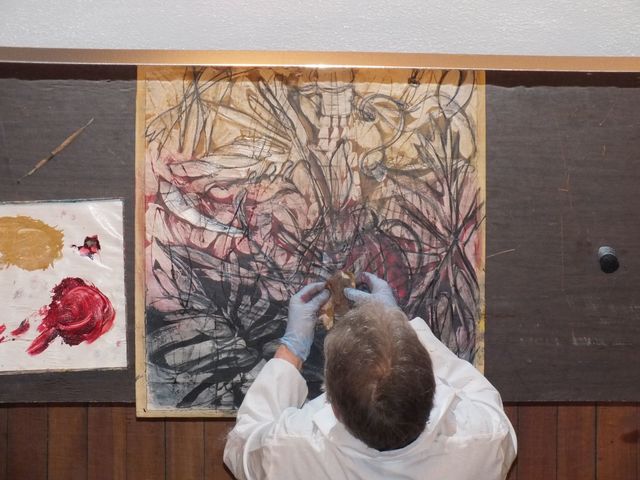
After covering the painting with the colors
She wipes off the excess, leaving the paint
in the areas of the paper not covered by the wax.
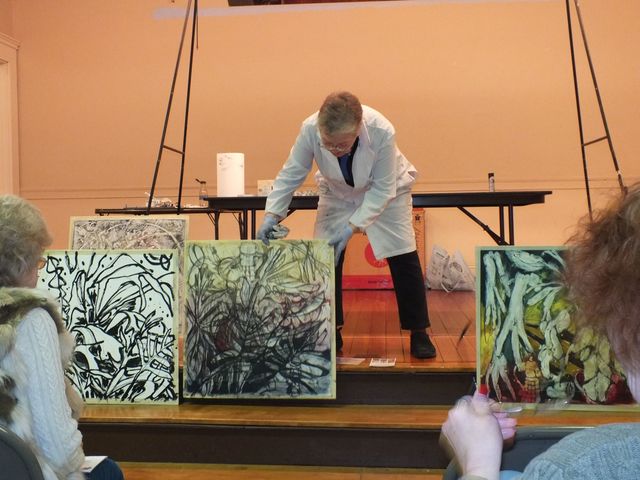
That was as far as she took the first painting.
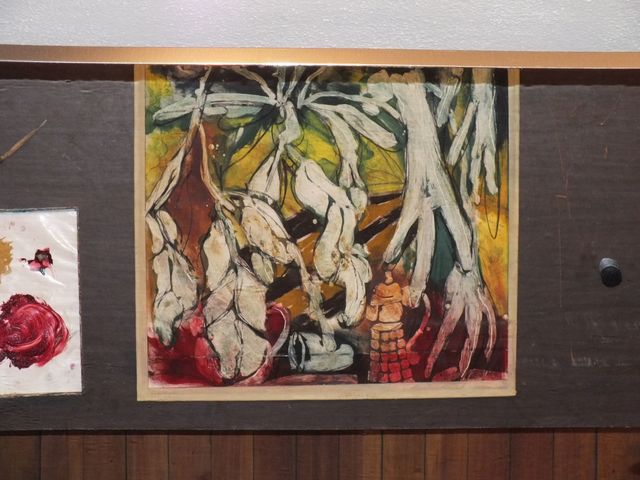
This is the second painting, which was more finished than the first.
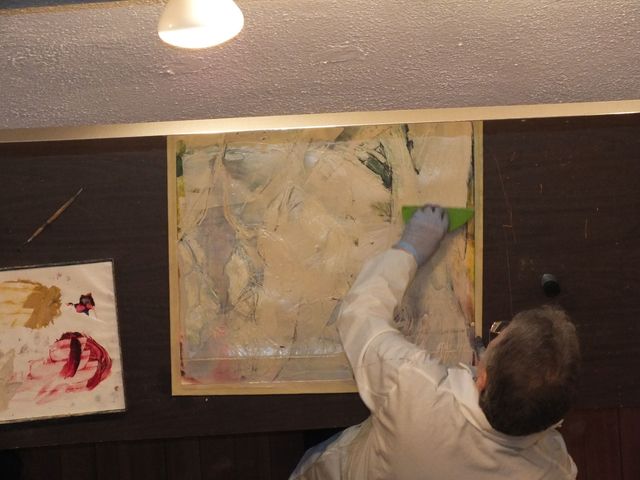
She covered that entire painting with white paint.
Then, she scraped the excess off using the green scraper.
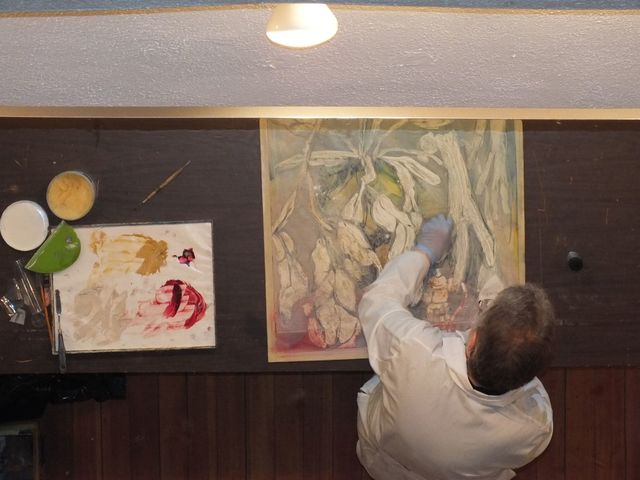
Here you can see that most of the white paint is gone.
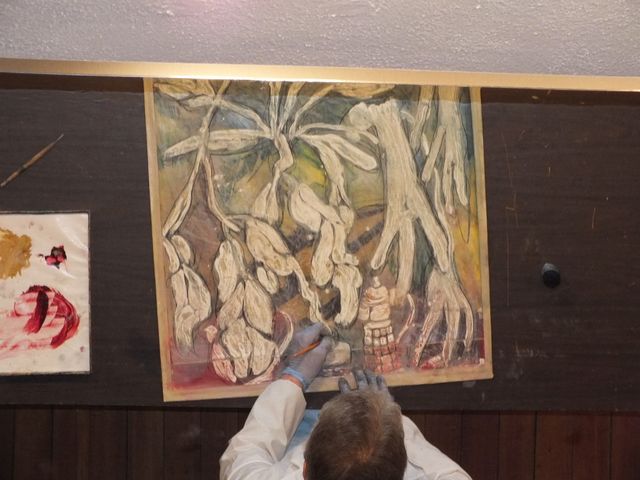
After the paint is on, she scratched some details in with a #2 pencil.
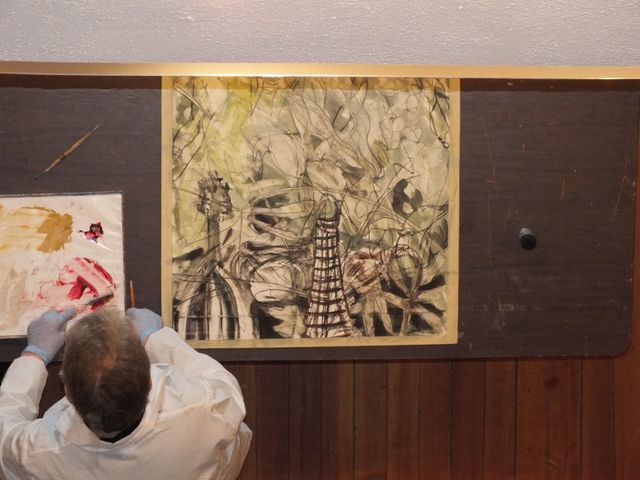
She moved on to a third painting.
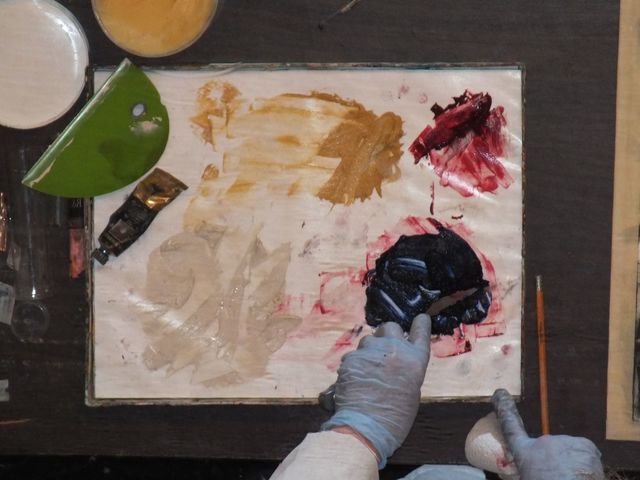
She mixed up a blue paint.
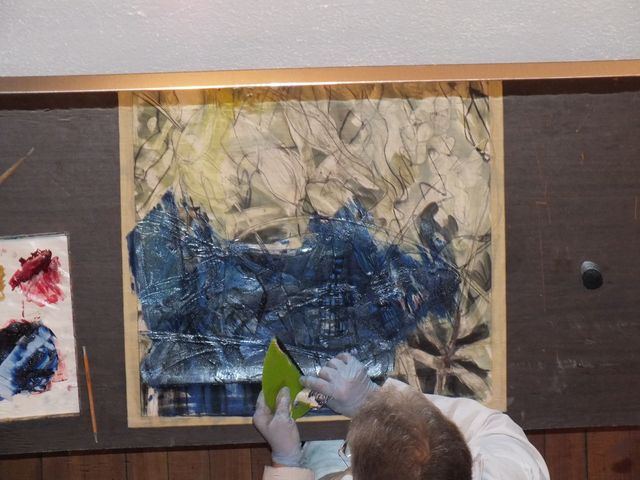
After covering the surface with blue, she scraped off the excess.
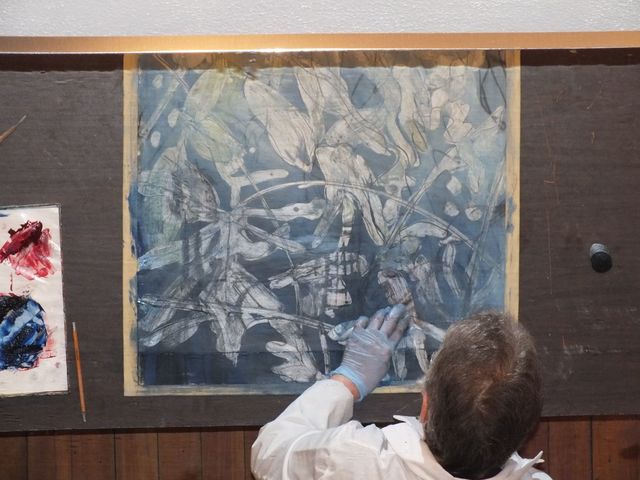
Then, she wiped it down with a paper towel.
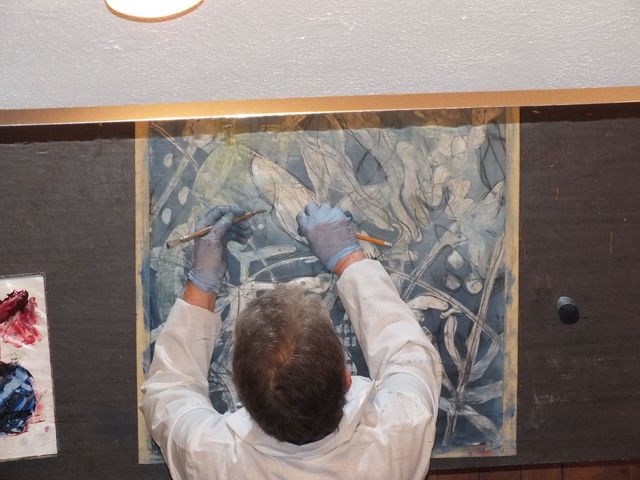
Once again, she scratched in some details.
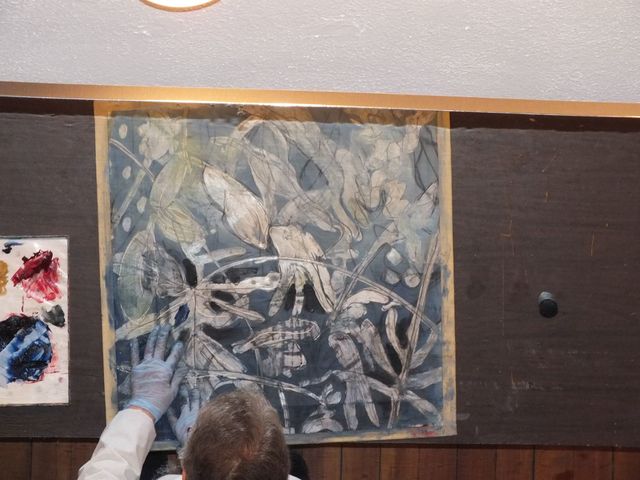
In this photo, she is using her finger to apply
very dark paint into small areas.
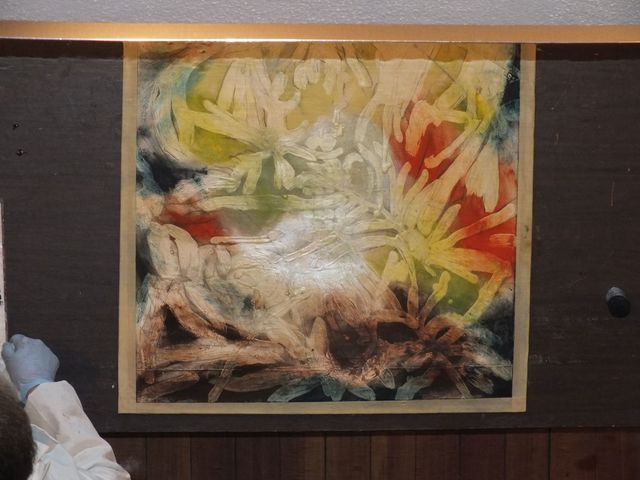
This is the fourth painting.
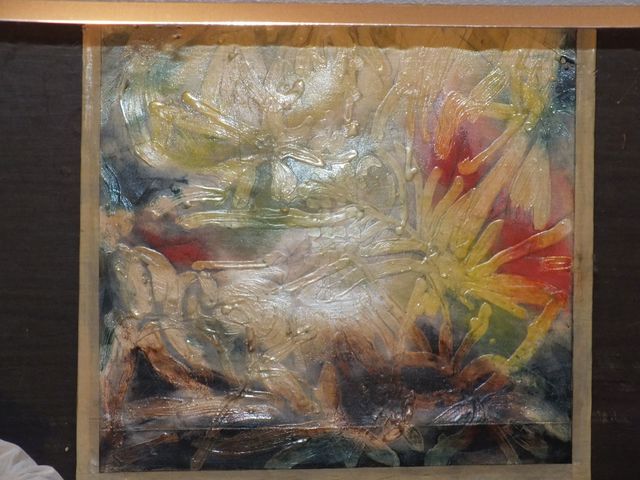
Deb applied a pearlescent white paint over most of the painting.
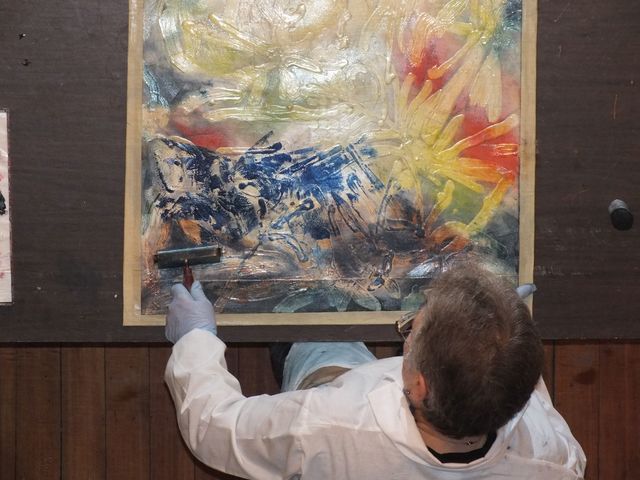
After that, she used a brayer to apply some of the blue.
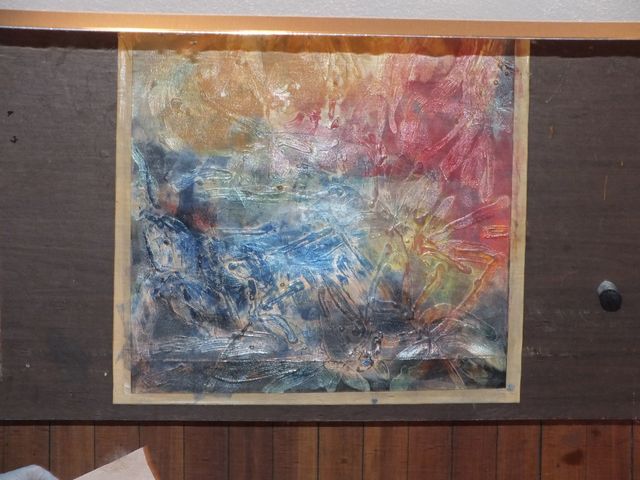
Here is the painting, covered with multiple colors.
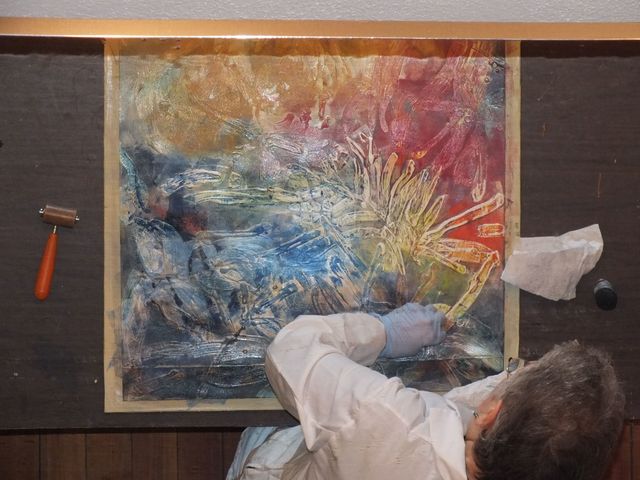
Deb is scratching some details into the wax.
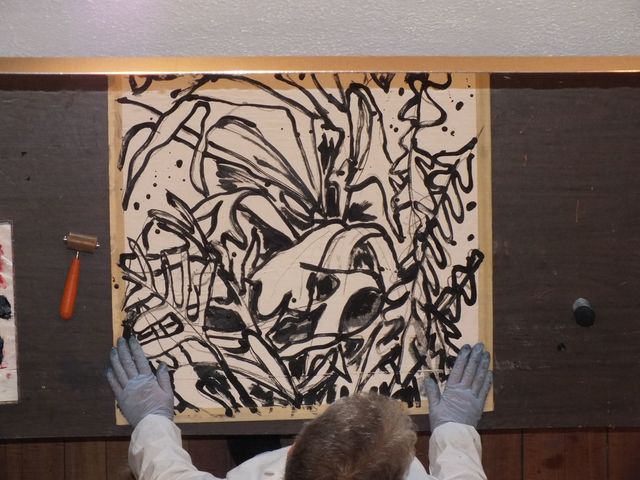
This is the fifth and final painting that she did.
The lines were made with black wax.
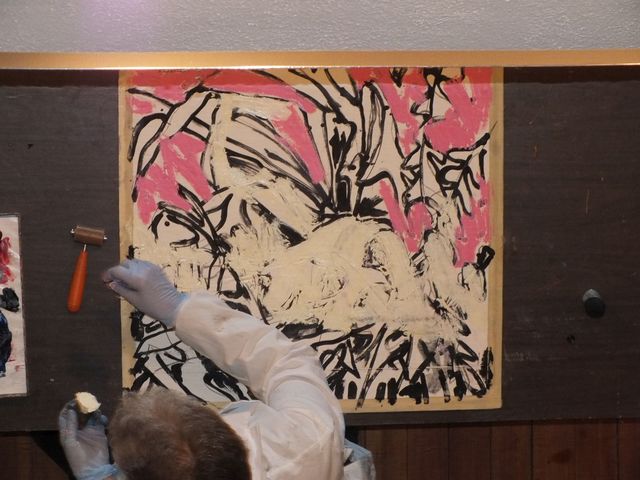
She started out with pink paint.
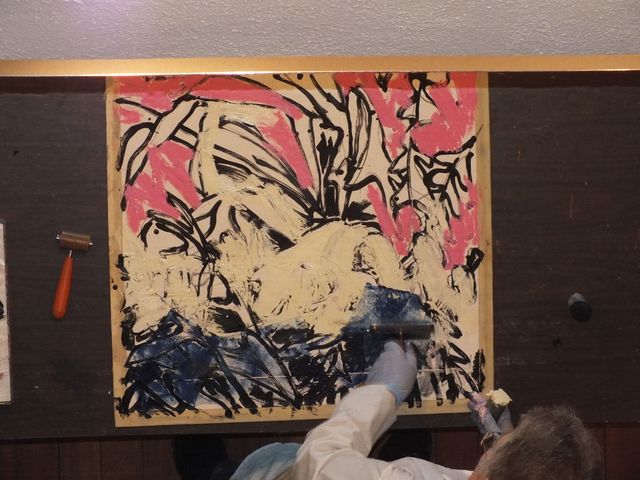
The brayer was used again to add some blue paint.
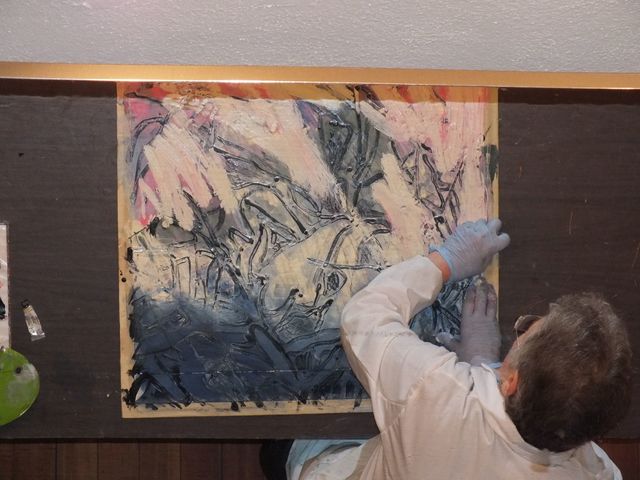
She continued adding paint to this final painting.
You can see some more of Debra's work at her web site, http://www.debraclaffey.com/
Debra Claffey is a visual artist who uses encaustic, oil, and mixed media in her work. Raised in CT, schooled in MA, she now lives and works in New Boston, NH. She holds a BFA in Painting from the School of the Museum of Fine Arts in Boston and Tufts University and a Associate's Degree in Horticultural Technology from the University of New Hampshire. After graduation she opened her first studio in Jamaica Plain in 1981 and helped begin the tradition of annual Open Studios there. She has exhibited across the country, especially here in New England, and her work can be seen at McGowan Fine Art in Concord, NH; the Hole in the Wall Gallery in Raymond, ME; and the Gerry Frazier Gallery at NHAA in Portsmouth, NH. Debra is a long-time member of the Women's Caucus for Art/NH and has served on the National WCA Board and the NH Chapter Board. She is also a juried member of the NH Art Association and of the New England Wax, a collective of artists who use encaustic.
Debra says excursions into color, form and texture are visual songs for her. She likes to combine opacity and translucence, scribbled line against an illusion of depth, thick surfaces with pale washes. The medium of encaustic wonderfully allows for all of this, plus carving and scraping back to reveal buried layers. Debra's subjects are often plants and every day objects from her life, arranged to accentuate their varied forms and shapes in complex compositions. She thinks of them as orchestrations of light and dark, shape and rhythm.